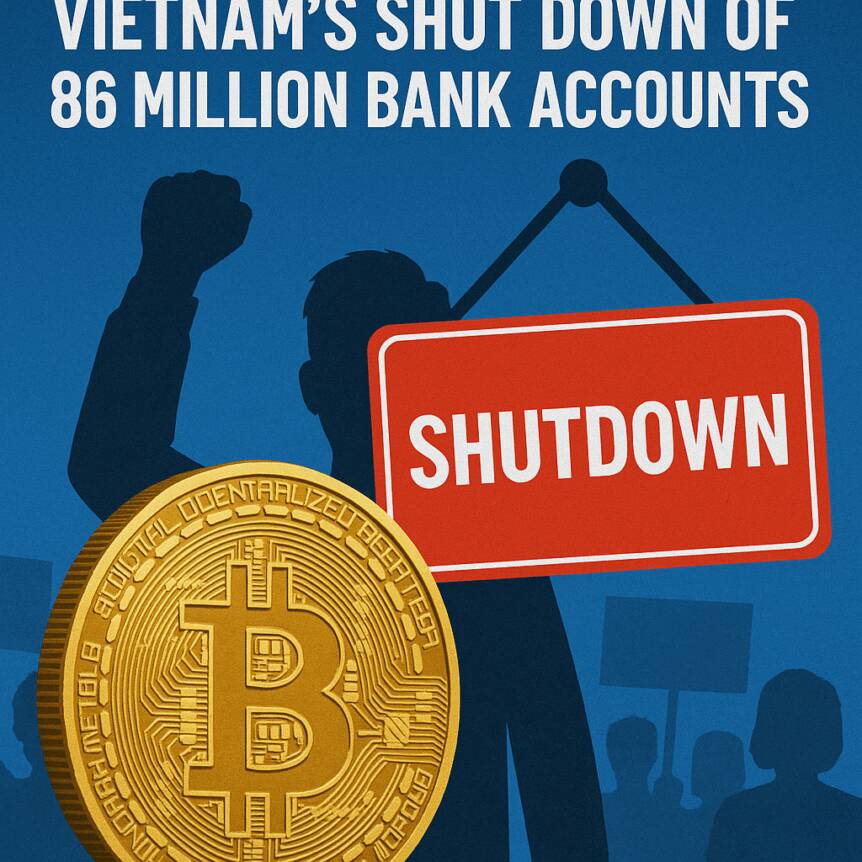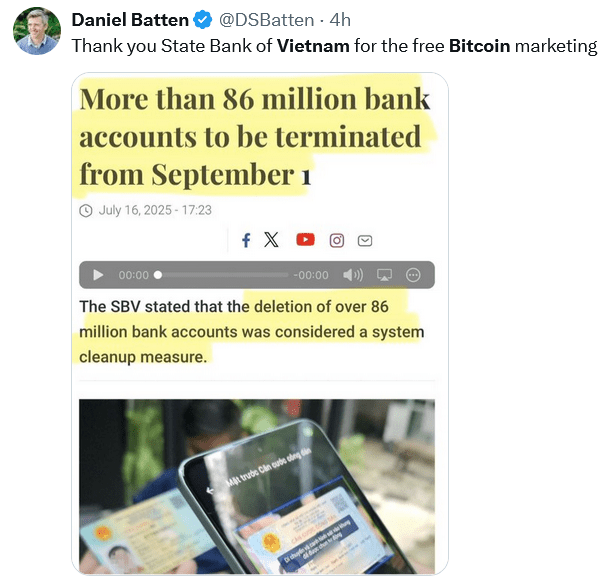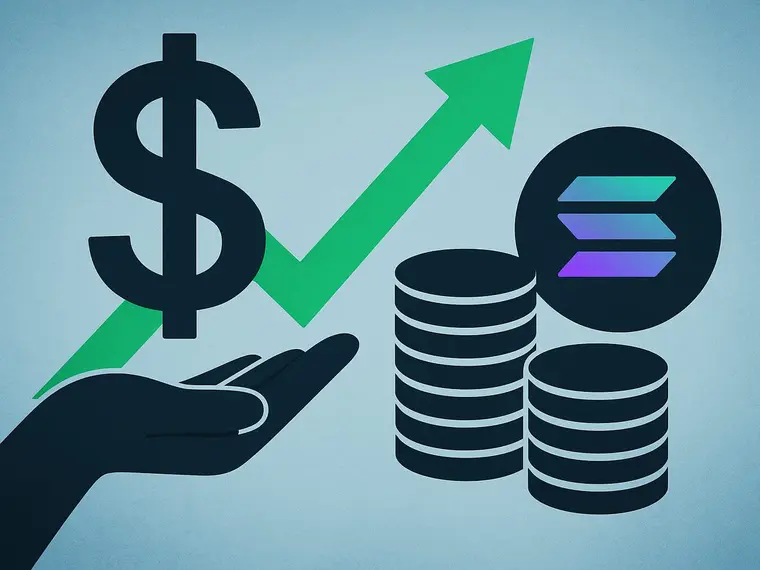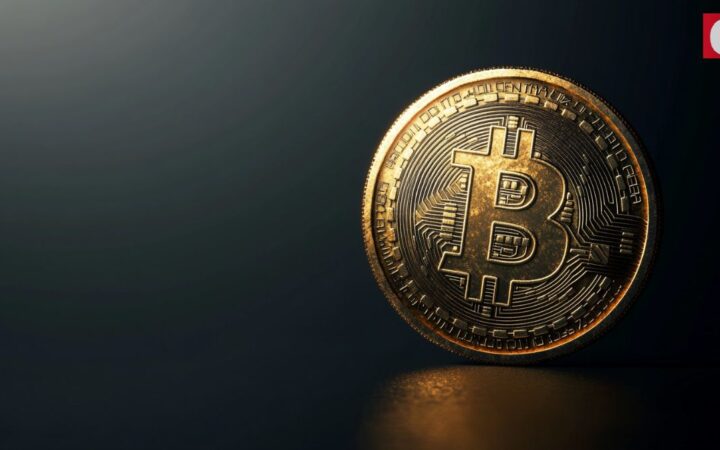Bitcoin Enthusiasts Criticize Vietnam’s Shut Down of 86 Million Bank Accounts

Crypto enthusiasts are reacting strongly to recent developments in Vietnam, where authorities have begun shutting down over 86 million bank accounts that have yet to meet a new biometric verification requirement. Reports from local outlets, including Vietnam+, indicate that these accounts began being terminated from September 1, as part of a broader effort to tighten financial controls and combat fraud.
The Vietnamese government introduced biometric laws aimed at preventing money laundering and financial crimes, requiring account holders to verify their identities through facial recognition. While over 113 million accounts have been verified, the remaining accounts faced closure if compliance was not achieved. This move has raised concerns in the crypto community, particularly among Bitcoin supporters who advocate for financial sovereignty and unrestricted access to funds.
A Reddit user, known as “Yukzor,” described the situation, sharing that the new laws have forced him to return to Vietnam in person to prevent his HSBC bank account from being closed—highlighting the lack of remote solutions for foreign residents. “Does that sound crazy to anyone else in 2025, you can’t transfer your money and have to fly into a country to resolve an issue?” he questioned earlier this month.
Crypto advocates argue that “if users don’t comply, they risk losing access to their funds,” as industry commentator Marty Bent pointed out. He emphasized that such measures reinforce why decentralized cryptocurrencies, like Bitcoin, are vital for safeguarding financial freedom, especially when governments impose stringent controls.
 Response from Reddit user “stnlywlkr” Source: Reddit
Response from Reddit user “stnlywlkr” Source: Reddit
Historically, similar measures—such as capital controls—have been implemented in countries like Lebanon, Turkey, Venezuela, Nigeria, and India. Industry experts warn that Vietnam might not be the last to adopt such restrictions. Daniel Batten, a Bitcoin environmentalist, notes that these biometric policies enhance state surveillance, underscoring the importance of permissionless blockchain protocols for protecting individual financial sovereignty.
 Source: Daniel Batten
Source: Daniel Batten
“Once you use Bitcoin as your bank, there’s no need to worry about government or central bank decisions that could require biometric verification,” Bent added. “That’s a powerful feature most of the world hasn’t fully realized yet.”
Biometric verification aims to curb fraud
The cybersecurity and finance sectors in Vietnam introduced biometric measures to counter rising AI-driven scams. Authorities have cracked down on an AI-enabled money laundering ring that used fake facial scans, laundering an estimated 1 trillion Vietnamese dong ($39 million) in recent months.
Customers are now required to undergo facial biometric authentication for certain transactions, including initial registration and transfers exceeding 10 million Vietnamese dong ($379). Larger transactions over 20 million dong ($758) also mandate biometric verification, according to the State Bank of Vietnam.
Some local crypto executives suggest the coverage may be exaggerated, noting most affected are inactive or foreign accounts, with little impact on native residents. Herbert Sim, the chief marketing officer of AICEAN and a known Bitcoin advocate, explained that these biometric and phone-binding requirements present significant hurdles, particularly for foreigners with accounts left dormant after relocating.
As Vietnam navigates its push for enhanced financial security, the situation highlights the global debate over crypto regulation and the necessity for permissionless monetary systems that protect individual rights against state overreach.
This article was originally published as Bitcoin Enthusiasts Criticize Vietnam’s Shut Down of 86 Million Bank Accounts on Crypto Breaking News – your trusted source for crypto news, Bitcoin news, and blockchain updates.
คุณอาจชอบเช่นกัน

Coinbase launches USDC lending on Base: up to 10.8% APY

Forward Industries zet $4 miljard in om Solana bezit uit te breiden
